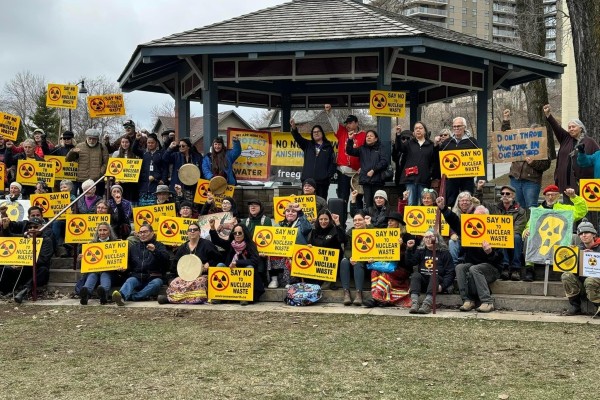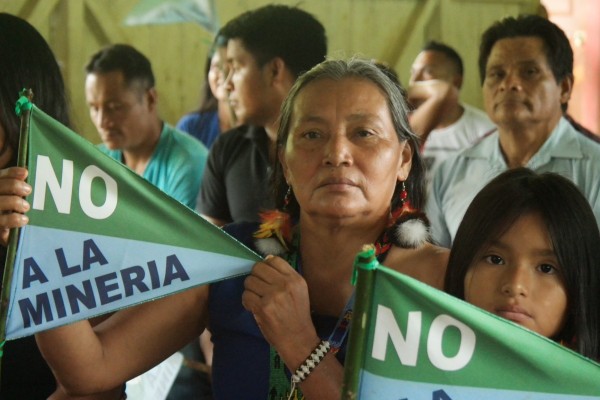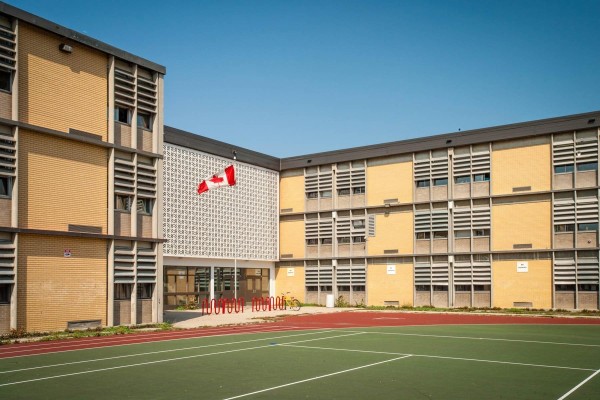-

First Nations and allies resist proposed radioactive waste repository
Indigenous communities have always been at the forefront of struggles against the nuclear industry on Turtle Island. The current battles against nuclear waste disposal in northwestern Ontario are no different. If Canada is to have a just transition away from fossil fuels, then it cannot be based on nuclear power.
-

Canada’s militarization of the Arctic threatens Indigenous communities and the climate
Defence Minister Bill Blair and Foreign Affairs Minister Mélanie Joly were recently in Nunavut to promote Canada’s new defence policy update. The policy change will expand the military presence of NORAD and NATO in the Arctic. This costly, carbon-intensive plan to militarize the region poses a grave threat both to Inuit communities and to the climate.
-

Mounds and memories, landfills and lost lives
The estimated millions it would cost to search for and recover the remains of three slain Indigenous women buried in a Manitoban landfill would be much better spent on regenerating the site to create a national memorial to murdered and missing Indigenous women. As Robert France explains, “the site must become a double place: the unnamed healed and the named re-named.”
-

Manitoba NDP increase policing spending by almost $30 million
With this budget, the NDP has maintained a long-standing right-wing trajectory by increasing funding to policing at the expense of things that actually keep people safe. The “justice” budget is a shameful expansion of criminalization that—regardless of the government’s supposedly progressive bluster—will result in even more Indigenous people being policed, jailed, and criminalized.
-

Complaint by Ecuadorian Indigenous nation asks BC Securities Commission to investigate Solaris Resources
On February 29, the Shuar Arutam People (PSHA) of Ecuador filed a complaint against Vancouver-based Solaris Resources Inc. before the British Columbia Securities Commission over its repeated failure to disclose material information to shareholders regarding its Warintza mining project, a large-scale copper and gold mine which overlaps with PSHA’s titled territory.
-

Canada joins Peru’s president in mining push
While the administration of Peruvian President Dina Boluarte prioritizes the growth of the mining sector, with the full-throated support of the Canadian embassy, organizations like Red Muqui are clear: in a time of increasing environmental pressure, those who stand to gain the most from mining are not those who will pay the biggest price.
-

Collaboration a must to create ‘warrior schools’
In his 2021 memoir, Life in the City of Dirty Water, Indigenous activist Clayton Thomas-Muller defines a warrior as someone who is “not defined by fighting. They are defined by fighting for.” Imagine what could happen if we all fought for an education system laser focused on creating just, sustainable, and democratic societies.
-

After years of public pressure, Panama finally closes Canadian copper mine
On November 28, Panama’s Supreme Court ruled unanimously that the 20-year contract granted to Canadian mining company First Quantum is unconstitutional. The decision came after weeks of nationwide protests forced the government to announce a referendum on First Quantum’s contract for December 17. Now, however, the court seems to have decided the fate of the mine.
-

Can Wab Kinew mark a new dawn for Manitoba under self-imposed constraints?
Those seeking an economic and industrial policy agenda that will reduce inequality, empower workers, and support a just transition in Manitoba can look to capital spending, legislative reform, and opportunities in the Crown corporation sector as areas where progress is possible, even if the narrow fiscal policy battle may have been temporarily lost.
-

The food police
Food theft isn’t an indicator of criminality, but of a failing social system that creates the conditions to leave individuals with no alternatives. Police in our grocery stores shouldn’t signal a need to crack down on food theft, but rather inspire questioning about why police are in our grocery stores in the first place, and what can be done to get them out.



